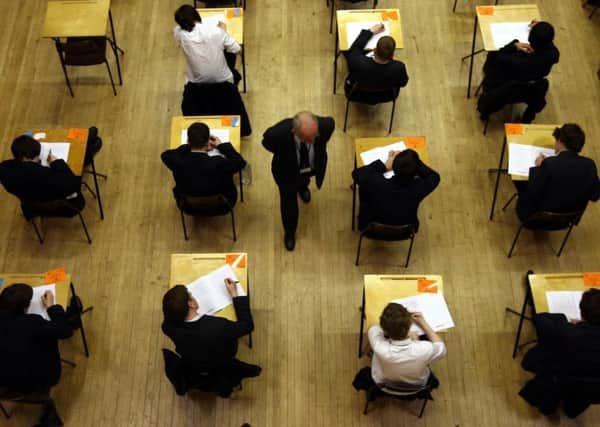A-level results day: parent do’s and don’ts


Over thirty per cent of students say their parents are making them feel worse about results day, according to a new survey by the University of Bradford and The Student Room.
Out of 460 students polled, 60 per cent saying that it will be the most stressful day of their lives.
Advertisement
Hide AdAdvertisement
Hide AdIt was also found that, in contrast to parents, teachers have been making students feel more relaxed about the day.
The survey revealed that more than half of students are “very worried” that they aren’t going to get the results needed to get into their first choice university.
Only 30% of students claimed that they are prepared if when things don’t go to plan – the rest are “just hoping for the best” (24%) or realise they “still need to do more research” (35%).
Here are some tips and advice that might help:
1. Encourage your child to think in advance about what they will do if they don’t get the results they hoped for. Even if they’ve achieved better results than expected there could still be options available.
Advertisement
Hide AdAdvertisement
Hide Ad2. For example Clearing: Universities use Clearing to fill extra places they have on a course. A student that hasn’t got the grades they need to take up a conditional offer they already have can go through Clearing to try for a place at a different university or college. Clearing opens at 8am on A-level results day at www.ucas.com or telephone 0808 100 8000.
3. Some homework before results day, identifying other options available could help in the event of grades not being good enough, including re-sit of exams, reassessing academic choices, or opting for a different route to the next stage of life, such as an on-the-job training scheme or an apprenticeship can help. (As opposed to storming down to the school to demand answers or remarking.)
4. “If there are tears, they’ve got to be shed,” says Sue Atkins, founder of advice website the Positive Parents Club. “Upset is like champagne bubbles; you’ve got to let it out, otherwise it all builds up.”
5. NHS family psychologist David Spellman suggests: “It’s a good idea to share your own stories of failure, if only to re-establish that everyone has their ups and downs, and that it isn’t the end of the world. It’s also worth pointing out that, with so many graduates unable to get jobs at the moment, a university degree is clearly not the only, or even necessarily the best way to get started in a career.”
Advertisement
Hide AdAdvertisement
Hide Ad6. Encourage your child to consider carefully the best option for them and not to panic and rush into accepting something that isn’t right.
7. But stress to your child how important it is to act now rather than put it off. This doesn’t mean they should be pressured or rushed into making decisions – the important thing is that they get information about all their options.
8. Dr Spellman also suggests parents prepare themselves emotionally: “How you react will be remembered by your child for the rest of his or her life. That’s the thing about parenting. You may not get any gratitude at the time but, in the long run, your efforts will be appreciated.”
Read more...